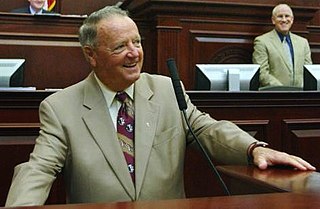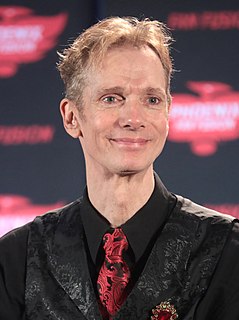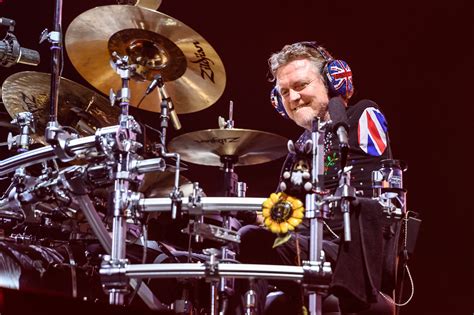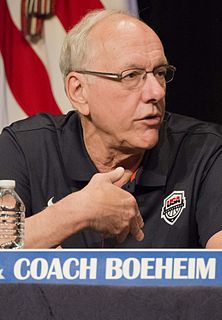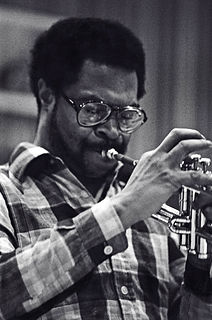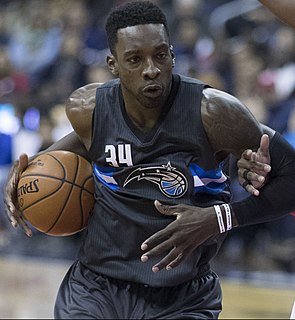A Quote by Vijay Iyer
In the 1990s I got to play in a group that played in prisons in California. We would play in maximum security wards. It was infuriating. Those kinds of situations stick with me. We got to come in and play music for them because that's a way of caring, just offering something, a gift, basically. They're basically the most grateful audiences I've ever experienced, because nobody's giving them anything.
Related Quotes
As good as we were, we didn’t win a National Championship until 1993, mainly because we kept losing to Miami on missed kicks. I used to get mad because nobody else would play Miami. Notre Dame would play them, then drop them. Florida dropped them. Penn State dropped them. We would play Miami and lose by one point on a missed field goal, and it would knock us out of the National Championship. I didn’t want to play them, either, but I had to play them. That’s why I said, 'When I die, They’ll say, ‘At least he played Miami.'
See, if you put a musician in a place where he has to do something different from what he does all the time, then he can do that - but he's got to think differently in order to do it. He's got to play above what he knows - far above it. I've always told the musicians in my band to play what they know and then play above that. Because then anything can happen, and that's where great art and music happens.
Nobody taught me to play bottleneck. I just saw it and taught myself. I got an old bottle and steamed the label off, put it on the wrong finger, I basically did everything wrong until I met some of the Blues legends early in my career who taught me another way. I didn't have anyone to tell me women didn't play bottleneck.
You have got to play the game with the cards that have been dealt to you, and it is of no use for you to bewail your fate because you don't hold different ones. Look them over, arrange them, and play. You certainly must play them before you will get any others, and you need never expect to have other people's cards.
I like playing at public schools. I like when there's more of a diverse audience. I'll play wherever people want to hear my music, and I'll be glad and grateful for the opportunity, but I'd rather not play for a bunch of white privileged kids. I'm not meaning that in a disrespectful way; you go where people want to hear your music. So if that's where people want to hear me play, I'm glad to play for them. But I'd rather play for an audience where half of them were not into it than one where all of them were pretending to be into it, for fear of being uncultured.
I would play all the parts of the song, show them the way it went together. Then I'd basically break down an arrangement - I wouldn't plan endings or beginnings - so they knew everything that was going on. I had the lyrics on a prompter so that I could remember everything I'd written, and I was able to just get into the groove and play with them. I think "Peace Trail" is one of the exceptions, where it's a later take. It just happened really quickly.
He wanted us to play whatever we played in the most characteristic and appropriate style. Even it was the theme from 'The Godfather,' you needed to play that then the way that a Hollywood producer would expect it to be played. Whether it was that or the posthorn solo from Mahler's Symphony No. 3, he would expect that to be played in the way that Leonard Bernstein wanted to hear it. In retrospect, I think it was a sensational way to teach this particular group of students. By the time you graduated you could absolutely read anything with any trumpet.
In order for a musician to grow, he's got to pay his dues. Some musicians ask me, 'well, what do you mean? You're saying I have to 'starve' and pay all these dues just to play jazz?' And my answer to them is, well, to some degree, yes! Because in order to play jazz you have to live it. Those notes mean something. They don't just come from your brain, they come from your heart and soul too. And in order to have that heart and soul you have to experience life. So I relate my music to my life and my life style. You can't separate the two.
Tone is so important because you can have a great script just be ruined with the wrong director - if they shtick it up or something. With 'Little Miss Sunshine,' I was so concerned they weren't going to play the pageant official realistically because you don't have to wink to play those kinds of characters.

